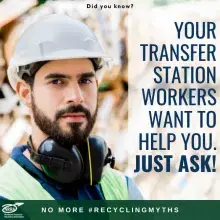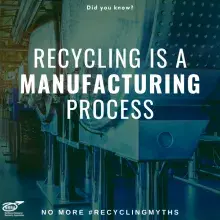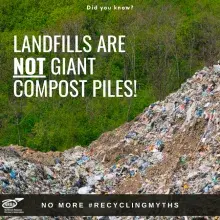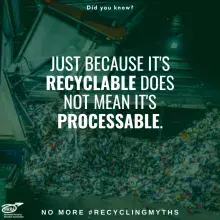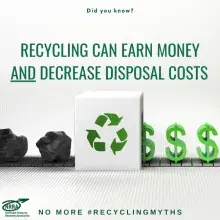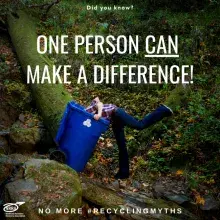Recycling Mythbusters: Do I have to remove tape from my cardboard boxes? Should I put my glass through the dishwasher before recycling? Do I need to remove paper labels from my cans? We bust these recycling myths and more to help break down barriers - real or imagined - between residents and recycling.
How To Use the Recycle Right Toolkit:
- Click "Read More" on the post you are interested in sharing
- To quickly share the entire image and text to Facebook, click the blue "Share" button
- To share the image and text in an email, on a website, or through social media like Instagram
- Click the "Download Image" link to automatically save the image to your computer
- Click the "Copy Text to Clipboard" button to automatically copy the text that appears beneath the image
